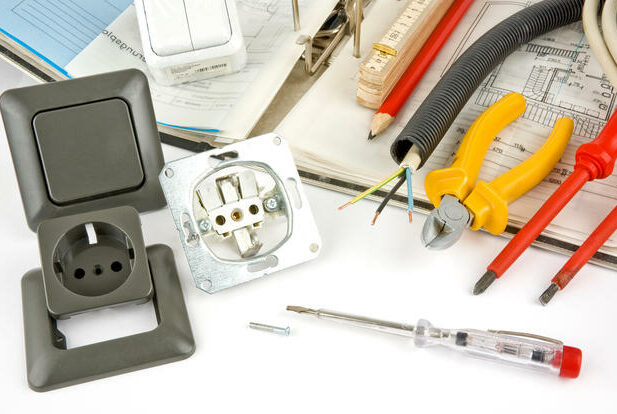 Notifiable work is a term used to describe certain types of work that must be reported or approved by building regulations. Work that should be reported includes new installations, rewiring a home, and installing new circuits. Work that should be reported also includes the addition of existing circuits in some places.
Notifiable work is a term used to describe certain types of work that must be reported or approved by building regulations. Work that should be reported includes new installations, rewiring a home, and installing new circuits. Work that should be reported also includes the addition of existing circuits in some places.
Your local government’s building control agency must approve all work that must be reported. You can also call on a registered competent person who can vouch for the compliance of the work.
Building regulations can apply to any electrical work you do in your home, garden, garage, or other storage buildings. The name of these jobs is “notifiable work”. Work done in commercial buildings does not need to be declared, unless the commercial building shares the same power supply as a house.
Anyone the company wants to hire can do this type of work on non-residential property, but it’s in their best interest to make sure they’re qualified. No, they do not need to be registered with a recognized organization, and yes, they can issue test and inspection certificates for their employer. However, the employer’s insurance company may require that the certificates come from an “approved” company.
Under the Building Regulations, work that must be reported is called “construction work”. This means that it must be reported to the local building control or signed by a “licensed electrician”. This is to ensure that it complies with both building and electrical regulations.
The work to be declared is:
- All new circuit
- Home rewiring
- Change of consumer unit
- Work in a single location, such as a bathroom.
Notifying your local building control can be a fairly straightforward process.
Registered electricians have joined a Part P scheme provider which has been approved by the government. When someone applies to join the program, they will be assessed and, if found qualified, they will be able to sign their work which must be reported without having to go through building control each time.
Non-notifiable (minor electrical work)
As the name suggests, electrical work that does not need to be reported to building control does not need to be reported. This can also be called “minor work” and includes adding, modifying, or replacing the same type of circuit. When the work is completed, you can immediately give the customer an installation certificate.
Any room in the house that is not a special location can be used to add or modify a circuit. This means that this type of work can be done in the:
- Bedrooms
- Living Room
- Kitchens
- Corridors
- Mezzanine
- porches
- Gardens
- Dining rooms
Certain parts of the house, however, are called “special places”. With one exception, this means that any work done in any of these locations must be reported. The only time this isn’t true is when you replace something with a similar one, like a downlighter, with one that has the same rating.
The bathroom is most of the time the only room in a house that is different from the others. Some of the others you might find are saunas and swimming pools.
What Electrical Work Can I Do Without a License?
The state does not require an electrician’s license for people who perform electrical work that plumbers need to install, maintain, service, repair, or replace any type of plumbing fixture or fixture on an electrical circuit existing.
Most states won’t let handymen do electrical work unless they have a license to do so. Different states have different licensing rules. But in general, most states have at least two licenses for electricians: one for commercial work and one for residential work. There are also three levels of certification depending on the experience of the electrician.
Only a licensed person can:
- own and manage a business
- promoting services
- Benefit from professional liability insurance
- bidding on government and public projects
Licensing and liability insurance protects the public and makes it clear what a contractor can and cannot do. Some handymen have licenses to do electrical work, others do not. The only sure way to find out is to ask for the driver’s license number and look it up.
In some states, you need a license and insurance to work as a handyman. But that doesn’t mean they know how to work with electricity. Most states have specialty licenses that allow contractors to obtain licenses in areas such as concrete, siding, roofing, windows, etc.
There are a lot of electricians who don’t have a license, so you have to be very careful not to hire one. If a handyman can’t show you an electrical license, they likely don’t know how to do the job. Many states have a place where you can check to see if you have a license.
When you work with someone who doesn’t have a license, bad things can happen. Most electricians who are not licensed do not meet state requirements to obtain a license. Some unlicensed contractors have been known to take advantage of people in disaster areas and leave before they are caught.
